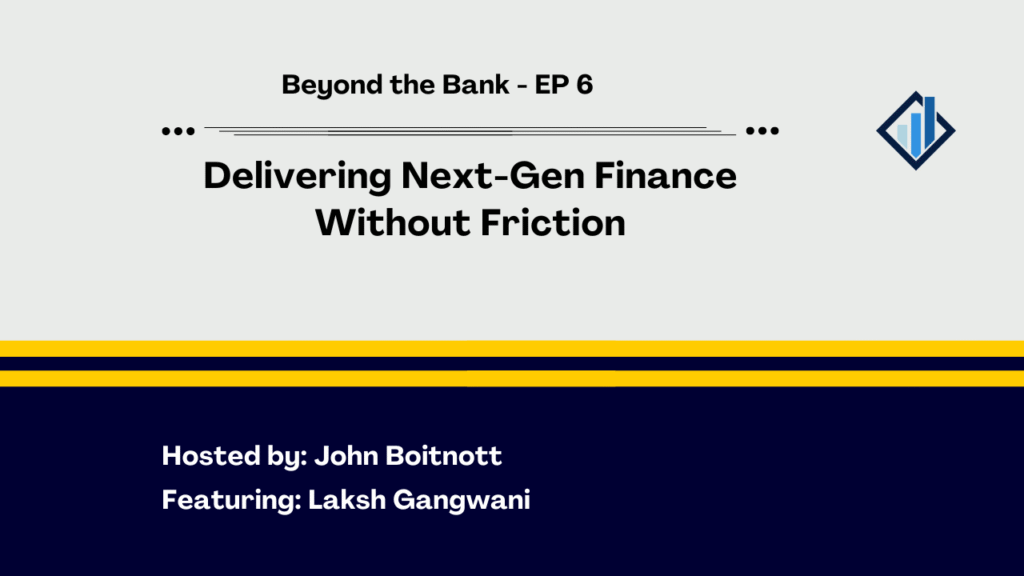In today’s fast-shifting financial landscape, few leaders embody the intersection of technology, client engagement, and global market access as clearly as Laksh Gangwani, Managing Director of Global Growth and Client Engagement at ViewTrade. With nearly two decades of experience growing technology-driven businesses, Gangwani has carved out a reputation for bridging complex innovations with practical solutions that empower banks, brokers, and fintechs worldwide.
From Building WealthTech Propositions to Global Growth
Gangwani’s career has been defined by scaling transformative businesses. At Symphony, he helped shape a wealth management proposition during the pandemic, enabling remote relationship managers to connect with clients across platforms like WhatsApp and WeChat. That work earned him industry recognition, including a WealthBriefingAsia award.
At ViewTrade, where he has spent the last three years, his focus spans growth, marketing, and client solutions across a global footprint. The company simplifies access to international stock markets by bundling what would typically require ten to fifteen different vendors into a single, integrated platform. For financial institutions seeking global reach, ViewTrade acts as the one-stop partner for brokerage, technology, and execution.
The Era of Cognitive Abundance
Gangwani frames the rise of artificial intelligence not as a story of replacement, but as the dawn of cognitive abundance, an era in which repetitive micro-decisions are automated, freeing humans to focus on higher-level value creation.
In banking and wealth management, this shift is already tangible. Traditionally cumbersome processes such as onboarding, KYC, reconciliations, and approvals can now be streamlined with generative AI workflows. Institutions like Morgan Stanley have demonstrated how large language models can democratize access to research across their organizations, allowing every advisor to operate at the level of the most knowledgeable expert.
Yet Gangwani is also pragmatic about AI’s limitations. Fully autonomous robo-advisory remains overhyped, he argues, pointing to issues such as data integrity, regulatory risks, and the persistent challenge of AI “hallucinations.” For now, human relationship managers remain indispensable to ensure responsible decision-making.
Walking the Talk at ViewTrade
Gangwani has put these ideas into practice within ViewTrade. One example is the firm’s AI-powered compliance assistant — nicknamed “Ford Jr.” after their compliance officer — which flags regulatory risks in press releases and marketing materials before they reach compliance desks. By reducing cognitive friction between marketing and compliance teams, the tool has accelerated approvals, reduced internal friction, and fostered greater trust across the organization.
This “unsexy” but impactful use case reflects Gangwani’s philosophy: AI should be deployed where it removes inefficiencies and creates space for human teams to focus on higher-value outcomes.
Preparing for the Great Wealth Transfer
Looking ahead, Gangwani sees a seismic shift in the $70–80 trillion wealth transfer from baby boomers to younger generations. Unlike their predecessors, Gen Z and Gen Alpha are digital-first, impact-oriented, and demand frictionless experiences. For financial institutions, this means that simply placing a digital wrapper on analog processes will no longer suffice.
Too many firms, he argues, are still run by executives two generations removed from their target clients, which leads to mismatched products and poor empathy for emerging investor needs. As he illustrates with examples from Singapore’s “most digital” banks, many organizations still require unnecessary in-branch processes for tasks that could easily be automated through open banking and digital identity.
For Gangwani, the solution lies in building “speedboats” tethered to existing financial institutions: agile, next-gen platforms free from legacy tech debt that can eventually absorb the larger organization into a modernized, frictionless model.
A Future of Always-On Markets and Wealth Accumulation
Gangwani also highlights major shifts already underway in capital markets. 24/7 trading of U.S. stocks, a reality in Asia for several years through ViewTrade’s infrastructure, is gaining institutional momentum. He sees this as a democratizing force, aligning global trading hours, increasing liquidity, and paving the way for new financial products.
Longer-term, he predicts that every financial institution will evolve into a wealth accumulation partner. Payments firms, insurers, and banks alike will integrate tools that round up, reinvest, and optimize financial flows for their customers. Instead of selling standalone products, the industry will increasingly align with the universal human goal: building a better future through steady wealth creation.
Human-Centered Finance in a Tech-Driven World
At the heart of Gangwani’s vision is empathy, a quality he insists is often overlooked in financial services. Whether through reducing compliance friction with AI, designing platforms for digital-native investors, or preparing for the great wealth transfer, his message is consistent: finance must adapt to people, not the other way around.
As ViewTrade continues to expand its global reach, Gangwani’s leadership highlights how technology, when grounded in empathy and designed for real-world problems, can reshape the financial industry for generations to come.
Want more Beyond the Bank? Read more articles or listen to the episodes on Apple Podcasts.













